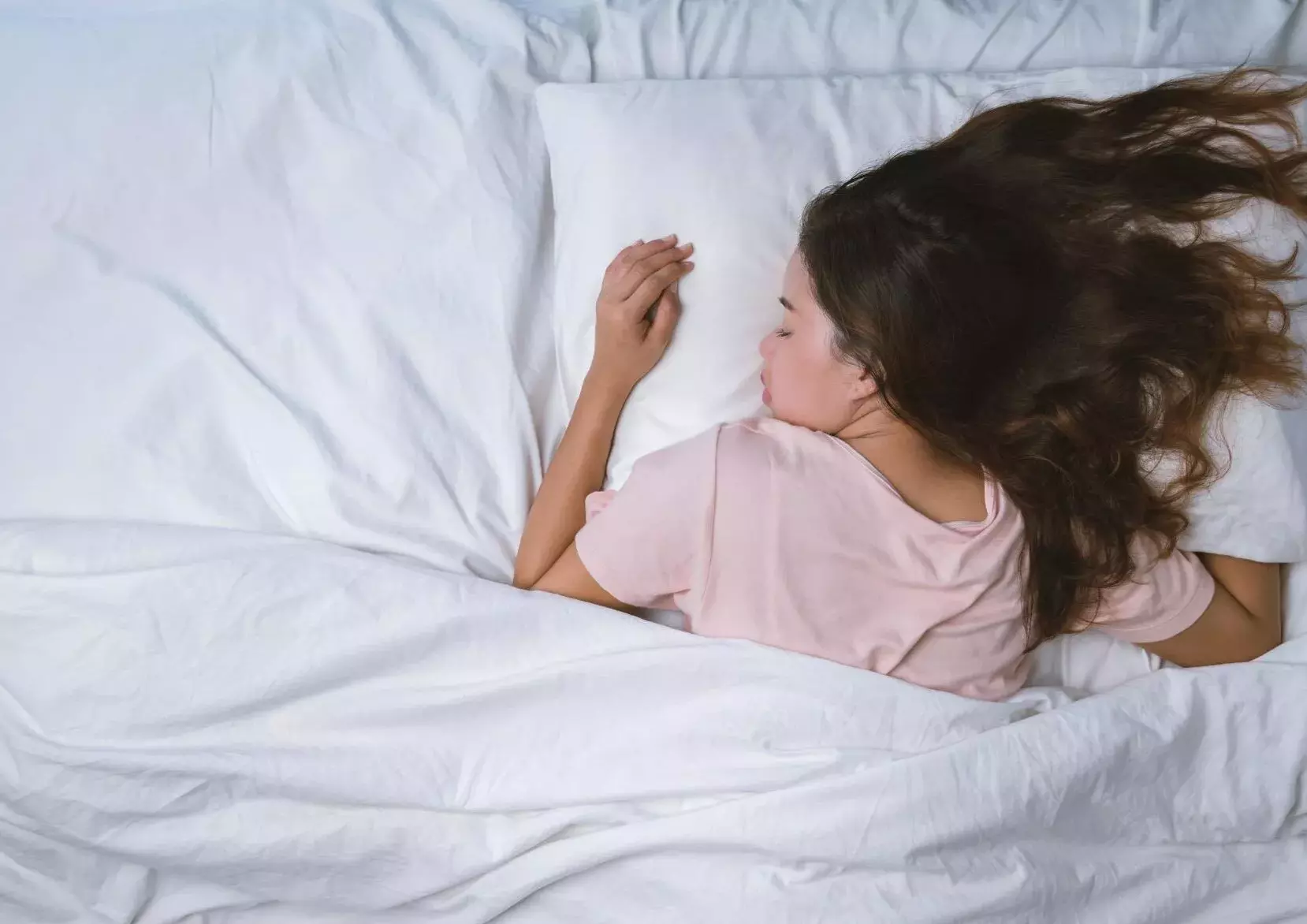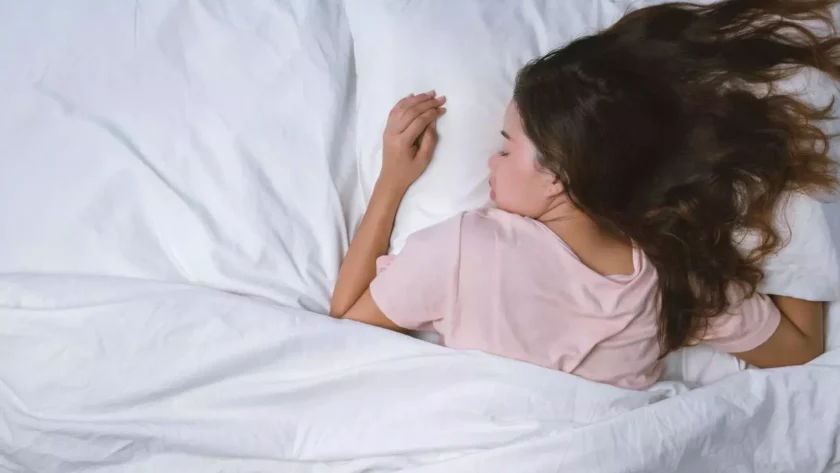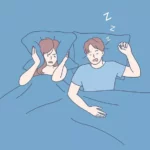Melatonin known as a sleep aid is secreted by the pineal gland (pea-sized gland) which is located middle of our brain.
It is responsible for sleep and wakes to upcycle.
Melatonin is produced in darkness, and being exposed to light at night can block MT production, which interacts with sleep patterns.
It is also known for maintaining circadian rhythms, (our body’s internal clock, which tells our body when to sleep, and when to wake) (1).
Apart from sleep, melatonin plays another vital role in our body which include:
- Regulate immune function
- blood pressure
- Reproductive system
- maintain bone health
- cell differentiation
- fat metabolism
- oxidative stress
- prevent inflammation process
- inhibition of cancer
In most people melatonin is produced enough, but in some people, sleep-related medical conditions interact with sleep quantity and quality.
For these people, melatonin supplements are recommended (one of the most common for a good night’s sleep).
Does Melatonin really sleep aid?
Contents
Sleep is a natural state of rest, which allow our entire body to refresh.
It’s recommended that a person should take 7 to 9 hours of sleep each night, even though many people struggle to get enough sleep (2) (3).
Yes, melatonin is primarily known for a good night’s sleep, the level rises in the evening when the light goes down.
Also promotes total sleep time, aids with fatigue from jet lag, or balances circadian rhythms from jet lag and rotating shift work.
But in many people, melatonin production is inhibited due to many reasons which include – stress, shift work, etc (4)
In these cases, melatonin supplements are most recommended to be given, which are given according to your age, and weight.
Melatonin may also help reset the body’s sleep-wake cycle (5).

Melatonin For baby’s sleep
Research reports showed that melatonin supplements may be useful in certain situations for both adults and children.
Many research indicates that melatonin may help children with sleep difficulties fall asleep quickly (6).
Several experts’ advice conclusion suggests that melatonin is safe for children but in short term, In long-term research are still pending.
NOTE: It can be used in the short term when a child needs to get back on track maybe after vaccination or illness.
Talk to your pediatrician, they tell you about the schedule and about dosing.
Melatonin is also allied with a few side effects on children including:
- Increased nighttime bed-wetting
- drowsiness in the morning
- may affect development and growth (especially during puberty)
- interact with other medicines the child is taking
Consult your doctor, about every supplement, before given to children, and they will tell you what is right for your child.
Small studies have shown that melatonin is also helpful in children with epilepsy and Autism, spectrum disorder (8) (9).
Melatonin during pregnancy for sleep
Clinical studies data suggest that melatonin use during pregnancy and breastfeeding is probably safe in humans.
Studies have shown that (MT) is safe in the short term but there is no clear confirmation for the long term.
According to the women mental health.org melatonin supplements decrease the risk of premature birth, and intrauterine growth retardation (10)
Animal studies have shown some side effects of melatonin use during pregnancy which include:
- nausea
- drowsiness
- headache
- dizziness
Melatonin also affects circadian rhythm in a fetus, which can potentially impact the baby’s sleeping patterns after birth (11).
NOTE: A most often asking a question can I take a sleeping aid while pregnant?
Insomnia can disturb sleep while pregnant, especially during the 3rd trimester, some sleep aid generally safe during pregnancy.
NOTE: Consult your doctor about any supplement that you are going to use, because it may interact with the baby’s health.
Check out – Obesity, And Pregnancy, Is Any Relation B/W Them, Risk
Melatonin for sleep disorders
Sleep disorder is a condition where a person’s sleep pattern is differently changed.
It can affect overall health, safety, and quality of life, there are some signs and symptoms of sleep disorder such as:
- daytime excessive sleepiness
- irregular breathing
- Increase movement during sleep
- irregular sleep
- difficulty in falling asleep
Here are the most common types of sleep disorders and is melatonin can affect sleep disorders?
Insomnia
Insomnia refers to a disorder of initiation and maintenance of sleep.
NOTE: In this where a person facing difficulty in falling asleep or staying asleep throughout the night.
The NHIS survey reported that approx 5.2% used melatonin and 27.5% of those users reported insomnia as a reason for taking the supplement.
A review study showed that melatonin may be effective in improving sleep quality and insomnia in patients with cancer.
Four + Students were 845 volunteers with melatonin used included, results showed a positive effect on better sleep in person with insomnia (12) (13).
Studies suggest that melatonin shows to prevent phase shifts from jet lag and improves insomnia in healthy adults, but to a limited extent.
MT has been synchronized in melatonin insomnia, sleep-wake breathing disorder, circadian rhythm sleep-wake disorder, and parasomnias (14).
Sleep apnea
It is another type of sleep disorder, where breathing rapidly start and stop (a serious matter) (15).
During a study, where participants were treated with 2 mg melatonin, results showed improvement of REM sleep behavior disorder symptoms in all patients.
However other studies suggest that melatonin was effective in improving global PSQI score and sleep latency, but not clear in sleep apnea in SM patients.
NOTE: PSQI (Pittsburgh Sleep Quality Index) and SM (sulfur mustard) is a toxic agent that targets several tissues.
Melatonin for Daytime sleepiness
The study showed that melatonin may be a promising treatment for improving daytime sleep in night workers.
But melatonin is known as a sleep aid, so it should be taken before bedtime.
NOTE: When it took at other times of the day, it may lead to drowsiness, which can cause an accident.
Another study shows that melatonin in swift workers can fulfill their sleep bucket, but some don’t accept it.
Dosages
NOTE: Melatonin dosages can vary from person to person.
Studies have shown that melatonin (0.1 to 0.3 mg dose) has been shown to affect both sleep and maintenance quality.
Whereas, a large amount (0.5 mg) affects the phase-shifting actions of melatonin (16)
Also, a very small amount (0.3 mg or less) of melatonin can raise daytime plasma melatonin to night-time levels (17).
During the research, healthy subjects were given oral melatonin during the daytime (0.1 to 1.0 mg), and the results showed drowsiness, fatigue, and decreased performance.
- Doses for children – The recommended melatonin dosage for children ranges from 0.05 mg PER kg to 5 mg.
- Older adults (55 to 77 years old) – A considered dosage is b/w 0.1 mg and 50 mg per kg.
- Breastfeeding, and pregnant women should first consult their doctor first.
NOTE: As we previously tell that melatonin dosages vary from person to person through their weight, age, and health.
Adverse effects
Taking melatonin supplements also has adverse effects, when taken high in doses (18) which include:
- Dizziness
- headache
- nausea
- sleepiness (19)
Avoid melatonin with benzodiazepines or zolpidem as it can lead to excessive sedation (20).
Where can we get melatonin?
You can get melatonin in many ways but focus on natural ways which include:
- Keep your bedroom, and the room should be dark, with no lights
- Avoid watching tv and using computers and smartphones
- Keep your room as noise-free as possible
There is a certain food that rich in melatonin contain which include:
- MIlk (especially warm milk)
- kiwi
- tart cherries
- fatty fish like salmon, tuna, etc
- rice
- almonds
Melatonin is also available in – supplements, gummies, sprays, etc.
Check Out – Foods Rich in Melatonin For a Good Night’s Sleep
BOTTOM LINE
Melatonin is primarily known for good sleep, promotes total sleep time, aids with fatigue from jet lag, and rotating shift work.
It is shown that melatonin can be good in the short term in both children and pregnant women, but the long-term effect is still under book.




